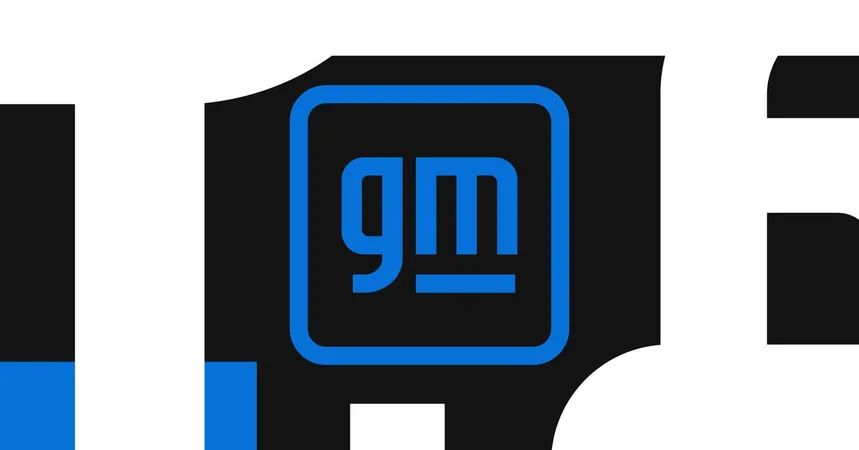
GM Shifts Gears: Sells Stake in Major EV Battery Plant to LG Energy Solutions
2024-12-02
Author: Noah
Overview
In a significant move, General Motors (GM) has announced the sale of its stake in a cutting-edge electric vehicle (EV) battery plant to its partner, LG Energy Solutions. This decision was made public on Monday, marking a pivotal moment in the auto industry's transition to electric power.
Details of the Sale
The nearly finished factory, located in Lansing, Michigan, was under development by Ultium Cells LLC—a joint venture between GM and the South Korean tech giant LG. With the recent non-binding agreement, LG Energy Solutions will take sole ownership of the facility and is set to finalize its completion. Once operational, the plant will produce batteries not only for GM but also sell to other automotive manufacturers, widening their market share and business potential. In the deal, GM is set to recoup its $1 billion investment in the facility.
Strategic Shift in Operations
This transition comes as GM continues to expand its battery production capabilities in the U.S. The automaker already collaborates with LG to manufacture batteries at plants in Warren, Ohio, and Spring Hill, Tennessee, focusing on power sources for models like the Cadillac Lyriq and Chevy Equinox EVs. Additionally, GM operates another battery plant in partnership with Samsung SDI in New Carlisle, Indiana. Following this strategic shift, GM's portfolio of battery factories in the U.S. will reduce to three, raising questions about how this will impact their overall production strategy.
Future Outlook
Despite these changes, GM remains optimistic about its EV business trajectory. The company asserts that it is on the cusp of profitability in the EV sector, mainly due to its ability to mass-produce batteries domestically. This strategy streamlines supply chains and enables GM to take advantage of financial incentives offered by the Biden administration. However, looming uncertainties exist, particularly with Donald Trump’s pledge to eliminate EV subsidies should he return to office, a move that could jeopardize the profitability of several automakers reliant on electric vehicle sales.
Statements from GM
Paul Jacobson, GM’s chief financial officer, expressed confidence in the company’s operational efficiency, stating, “We believe we have the right cell and manufacturing capabilities in place to grow with the EV market in a capital-efficient manner. Completing this transaction will also enable LG Energy Solution to meet rising demand by leveraging capacity that's nearly ready to come online.”
Innovation in Battery Technology
In a complementary effort, GM and LG are also collaborating on the development of rectangular “prismatic” battery cells. These advanced cells are designed to provide greater energy capacity compared to traditional cylindrical cells, and their manufacturing process is generally considered straightforward, promising to ramp up production capabilities significantly.
Conclusion
As the automotive landscape continues to evolve, this partnership between GM and LG stands as a testament to the escalating competition in the EV market, highlighting the urgency for companies to innovate and adapt to consumer demands for cleaner, more sustainable transport options. Stay tuned, as this story continues to unfold!









 Brasil (PT)
Brasil (PT)
 Canada (EN)
Canada (EN)
 Chile (ES)
Chile (ES)
 España (ES)
España (ES)
 France (FR)
France (FR)
 Hong Kong (EN)
Hong Kong (EN)
 Italia (IT)
Italia (IT)
 日本 (JA)
日本 (JA)
 Magyarország (HU)
Magyarország (HU)
 Norge (NO)
Norge (NO)
 Polska (PL)
Polska (PL)
 Schweiz (DE)
Schweiz (DE)
 Singapore (EN)
Singapore (EN)
 Sverige (SV)
Sverige (SV)
 Suomi (FI)
Suomi (FI)
 Türkiye (TR)
Türkiye (TR)